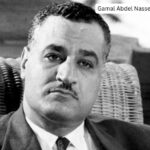Amr Diab is more than just a singer—he is a cultural icon whose music has transcended generations, shaping the sound of modern Arabic pop. Known as the “Father of Arabic Pop,” Diab’s innovative blend of traditional Arab melodies with contemporary global sounds has secured him a legendary status not only in the Middle East but across the world.
Early Life and Musical Beginnings
Amr Abdel-Basset Abdel-Azeez Diab was born on October 11, 1961, in Port Said, Egypt. From a young age, he displayed a natural talent for music. His first public performance came at the age of six, when he sang the Egyptian national anthem on local radio. Encouraged by his family and community, he pursued music seriously and later studied Arabic Music at the Cairo Academy of Arts.
His early albums in the 1980s introduced him as a fresh talent with a unique style that was different from the classical and traditional Arabic music dominant at the time. By fusing Western instruments and rhythms with Egyptian influences, Diab set the stage for a new era in Arabic music.
Rise to Stardom
The 1990s marked a turning point in Amr Diab’s career. His 1996 album Nour El Ain was a global breakthrough, earning international recognition and winning awards. The title track became a timeless hit, played at weddings, parties, and gatherings across the Arab world and beyond. It introduced millions to the sound of Arabic pop and is still considered one of the most iconic songs in modern Middle Eastern music.
Diab’s ability to adapt to changing musical trends while staying true to his roots kept him relevant throughout the decades. Each new release brought fresh sounds, from dance beats to romantic ballads, resonating with fans across age groups.
The Style That Defined a Genre
What makes Amr Diab the “Father of Arabic Pop” is his unparalleled ability to merge cultures through music. He effortlessly combined Arabic lyrics with international styles such as reggae, R&B, Latin, and electronic beats. His charismatic stage presence, modern fashion sense, and innovative music videos helped redefine the image of the Arab pop star.
He is also known for introducing a distinct vocal style called Mediterranean Music, which blends Eastern and Western elements into a harmonious sound. This innovation not only influenced his contemporaries but also inspired an entire generation of Arab artists.
Awards and Achievements
Amr Diab’s contributions to music have been recognized globally. He holds multiple World Music Awards for being the best-selling Middle Eastern artist, a record unmatched by his peers. Over his career, he has released dozens of albums, sold millions of records, and performed in packed arenas worldwide.
His influence extends beyond music. He became a cultural ambassador for Egypt and the Arab world, representing a modern, globalized image of Arabic identity while celebrating its traditions.
Legacy and Influence
More than four decades into his career, Amr Diab remains a dominant force in the music industry. His fans—spanning across the Middle East, Europe, North America, and beyond—continue to eagerly anticipate his releases. Younger Arab musicians often cite him as a role model who paved the way for Arabic pop to gain international recognition.
Amr Diab’s legacy is not just about the songs he created but the doors he opened. He transformed the landscape of Arabic music, making it accessible and relatable to a global audience without losing its authentic essence.
Conclusion
Amr Diab’s title as the “Father of Arabic Pop” is well deserved. Through his visionary approach to music, he has created a timeless repertoire that unites cultures and generations. From his humble beginnings in Port Said to international superstardom, Diab’s journey reflects not only the story of a remarkable artist but also the evolution of Arabic music in the modern world.





